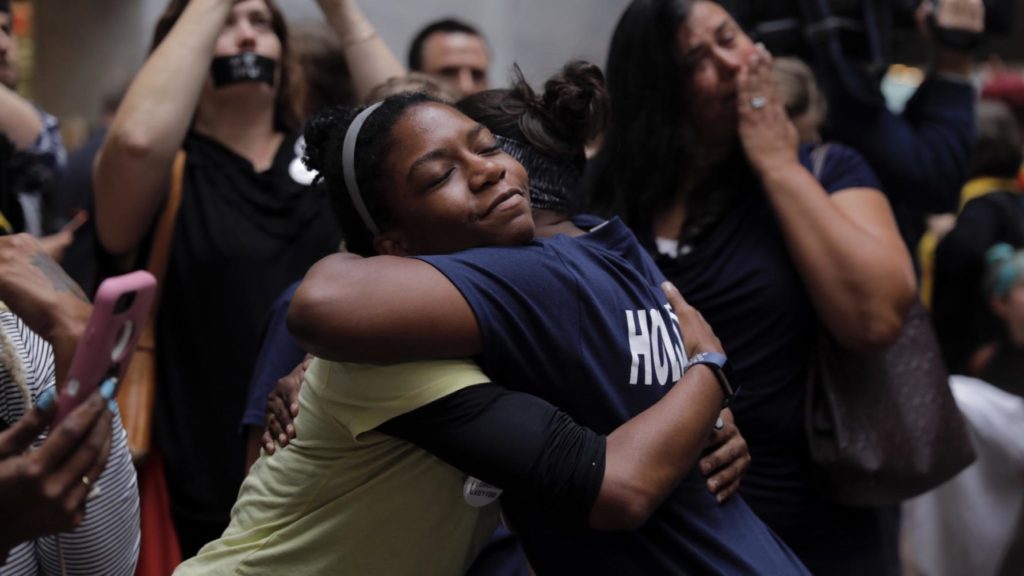Saying Goodbye To The Kojo Nnamdi Show
On this last episode, we look back on 23 years of joyous, difficult and always informative conversation.

Women embrace at a protest outside the Kavanaugh hearing.
When Christine Blasey Ford sat before the Senate Judiciary Committee and testified that Supreme Court nominee Brett Kavanaugh sexually assaulted her when they were both teenagers back in 1982, millions were listening.
For many in the Washington region — and around the country — the details of Ford’s assault and its lingering psychological effects brought painful memories to the surface.
Some leaned on friends and coworkers for support while others took to social media to share their experiences. How are survivors of sexual assault coping in the #MeToo era? And what local resources are available to those seeking help? Kojo speaks with two local professionals, and takes your calls.
Produced by Julie Depenbrock
National Sexual Assault Hotline: 800.656.HOPE (800.656.4673)
D.C. Rape Crisis Center Hotline: 202.333.RAPE (202.333.7273)
The D.C. Victim Hotline: 844.4HELPDC (844.443.5732)
RAINN (Rape, Abuse, & Incest National Network) has state-by-state resources. Find them here.
On this last episode, we look back on 23 years of joyous, difficult and always informative conversation.
Kojo talks with author Briana Thomas about her book “Black Broadway In Washington D.C.,” and the District’s rich Black history.
Poet, essayist and editor Kevin Young is the second director of the Smithsonian's National Museum of African American History and Culture. He joins Kojo to talk about his vision for the museum and how it can help us make sense of this moment in history.
Ms. Woodruff joins us to talk about her successful career in broadcasting, how the field of journalism has changed over the decades and why she chose to make D.C. home.